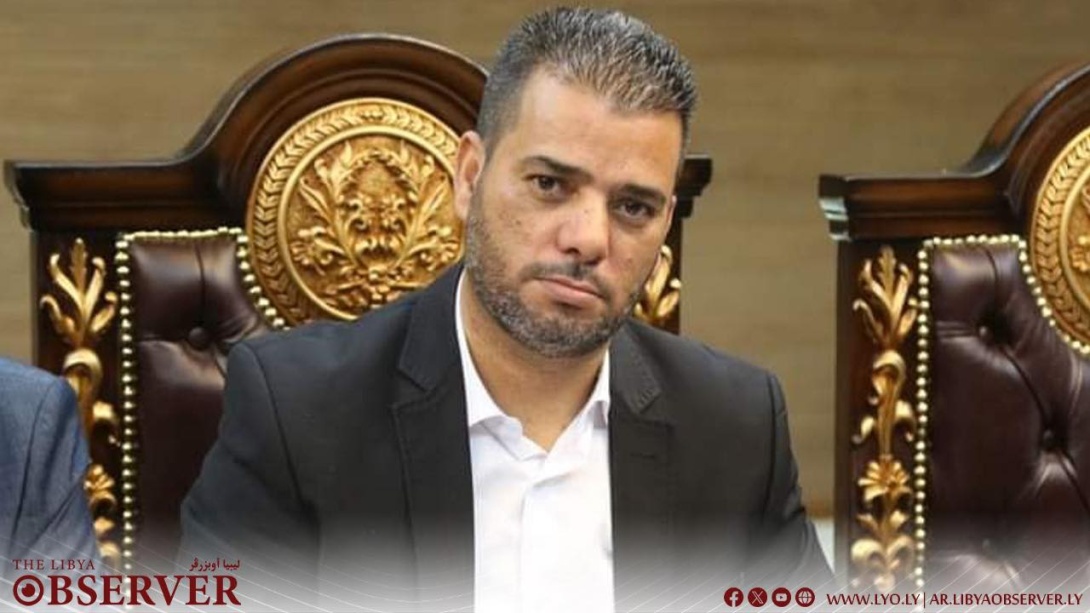By Abdullah Alkabir, political writer and commentator
Fate of MP Ibrahim Al-Dressi

Whenever a forced disappearance committed by criminal gangs in eastern Libya comes to light, it brings to mind previous cases of disappearances and arrests that remain shrouded in mystery. The details surrounding these incidents have not been revealed, and the fate of their victims remains unknown. Perhaps the most famous among them is the disappearance of Mrs Siham Serqiwa, a member of the House of Representatives.
Representative Ibrahim Al-Dressi followed a similar path. He was kidnapped and disappeared in mid-May, and as of writing these lines, his fate remains unknown. The party responsible for his kidnapping and disappearance has not claimed responsibility, and the security services, despite claiming to continue the search operation, have not revealed any traces or clues that could lead to progress in the search process.
In comparison to previous cases that occurred in areas under the influence of the criminal authorities, it is possible that Al-Dressi is alive but injured and receiving treatment secretly. Eventually, he may be released. Alternatively, he might have been killed during or after the process of kidnapping and hiding. In either scenario, the criminal gangs will not disclose his fate, relying on the passage of time to overshadow the incident with other distractions. The initial uproar accompanying the incident will gradually subside until the anniversary of his kidnapping and disappearance arrives.
The popular story surrounding Al-Dressi’s disappearance centers on his declared protest against the search and the rude treatment he endured before being allowed to enter Haftar’s celebration platform. According to this narrative, Al-Dressi criticized the control exerted by Haftar’s sons and relatives over high-ranking positions, as well as the absence of the “original” sons of Cyrenaica from the forefront of the political scene. If this story holds true, the natural reaction of this authority would be to arrest and hide him. He might face the same fate as his fellow MP, Mrs Siham Serqiwa, or alternatively, he could reappear after several months, much like Faraj Qaim. In this scenario, Al-Dressi would undergo rehabilitation to embrace the “truth” that he must believe in and not deviate from for any reason. The fact that Haftar, his family, and his clan controlled the reins of power in Cyrenaica would be entirely erased from his memory.
Totalitarian power, at any time and place, must extend its long hand to the public sphere, subjecting all activities to its direct control. The authority wields the final say on all issues, and the law is the law of the absolute ruler. Citizens, or subjects in a more precise sense, cannot take positions or express ideas and opinions that contradict or oppose the authority’s positions. Doing so exposes them to the risk of arrest, torture, and even murder. Any charges are framed against them as a precautionary measure that shields the authority from legal consequences in the future. But do these policies and procedures also apply to figures known for their loyalty to the totalitarian authority?
All evidence points to one answer: ‘yes.’ Even loyal individuals may face the consequences if they make statements or exhibit behavior contrary to the authority. In such cases, their punishment may be more severe, as they could be accused of treason.
Representative Al-Dressi is not known to have adopted any positions contrary to Haftar’s authority. Instead, he is a staunch supporter and active participant of Haftar, defending and justifying his actions both in the House of Representatives and through satellite channels, much like MP Siham Serqiwa. Given this context, the question arises: Why was he kidnapped and hidden?
To gain further insight and potentially remove some ambiguity surrounding MP Al-Dressi’s case, let’s examine two similar previous incidents.
Serqiwa defended Haftar and justified his gang’s criminality by citing the necessity of combating terrorism. This position aligns with the oppressive, totalitarian authority. Although her demand to summon Haftar and hold him accountable before the House of Representatives could have been overlooked, it was impossible to ignore her appearance on television and her objection to Haftar’s gang war in Tripoli. Tragically, her house was stormed by Haftar’s militias, and she was kidnapped. Her fate remains unknown until now, despite unofficial confirmations suggesting that she was killed.
The other incident involved the kidnapping and imprisonment of Faraj Qaim, who is now a prominent leader in Haftar’s guards. Qaim had appeared on television and made strong statements about Haftar, accusing him of seeking to assassinate him. He even called on his tribe to “beat the drum,” indicating preparation for an armed confrontation with Haftar’s forces. As a result, he was kidnapped and hidden away. After several months in Haftar’s prison, he was eventually released and became Haftar’s personal bodyguard. This sharp reversal in Qaim’s positions provides us with a comprehensive idea of what happened to him during his time in Haftar’s prisons.
Which of the two fates is closer to the case of Al-Dressi? It is difficult to say definitively, but what is most likely is his eventual return to resuming his life as it was before his temporary rebellion, when he spoke out the truth.
That is, he appears again after undergoing rehabilitation and coming to believe in the “truth” established by force and oppression regarding the authority of Haftar, his family, and his closest clan. Ensuring that Al-Dressi would not abandon such ‘truth’ again.
Disclaimer: The views and opinions expressed in this article are those of the writer, and do not necessarily reflect those of the Libya Observer



